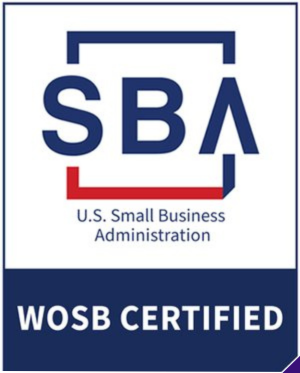I am the first to admit that there is a whole lot of publications and formal certifications on agile coaching but I feel it always helps to hear some real-life stories and insights and hence sharing my own insights as an agile transformation consultant and coach on how one can be an effective coach.
Agile may have sprints but coaching is all about marathons!
Much as the basis of agile is from the short cadence of sprints, the path to agile maturity for any team is more aligned to a marathon as opposed to sprinting as you need to have sustainable pace for the long haul and any coach needs to help the team to avoid a burn-out with overcommitment that is short term.A good coach should be able to help the team to learn the difference from being fast to being reliable and consistent
A coach is a life-long learner
From my experience as an agile coach over many years, one thing that never ceases to amaze me is the learning opportunity in each new engagement and how I end up seeing a new perspective or thought process that just blows me over enriching my own experience as a coach for my future engagements.
To take advantage of these learning opportunities,
- learn to accept that you don’t have a solution when you walk into any engagement, until you do your due diligence of the context.
- Learn to be not defensive about any skepticism on agile from the clients but use this as a Segway to have meaningful discussions that reveal so much about their past scars, pain points, organizational dynamics etc. that helps you as a coach to come up with the proper solution for that client.
- Respect the history of the organization as this has lot of bearing on their change efforts and all organizations are not created equal.
- Follow Simon & Garfunkel and listen to the “sound of silence” – Those from my era will know this popular song and in agile this has profound value in recognizing how much silence speaks!
Those in the meetings who are silent often have deep insights and pains of their concerns not being heard during the agile transformation efforts and this is where the golden nuggets of valuable coaching opportunities reveal themselves to you as a coach.
Coaches need Integrity
Like they say “doing the right thing even when no one is watching you “applies to agile coaching more than anything else because you as a coach is often among those who cannot assess if you are doing the right thing as they are looking for you to teach them.
So how does one go about it?
Demonstrate the agile values of honesty and courage and call out the dysfunctionalities you see in the system and while doing it share guidance on what can be done to mitigate or eliminate those issues over time setting up feasible incremental improvement road-map.
Leverage metaphors to convey guidance as these are very effective. I was coaching a group of leaders on the idea of progressive elaboration and rolling wave planning and they were so lost with the concept and it stuck me to bring in the metaphor of driving during fog where you can only see the short distance clearly, while you do have an idea about your path to final destination. This worked and resonated with all so quickly!!
Focus on transparency and let the leadership and teams know alike , how important it is to have clarity of the mission and vision that all can relate to and share.
Did you know motivation is contagious?
Agile coaches need to be self-motivated to make each of your teams get motivated be a tad more agile than they were before you started coaching them and do this incrementally so that the teams make progress that is sustainable and significant over time.
Motivation comes from believing in a cause as worthy and being passionate about evangelizing the value to others. The key to success as an agile coach is to be authentic and share insights from your own experiences that resonate with the teams and stakeholders resulting in them getting motivated with the belief that this approach will work for them.
Do not fear to share your own failure stories as well as success stories because lot of motivation comes from surviving setbacks and most of the teams new to agile are scared of failure and what else can motivate them better than a coach who has been there and made it !
In cases of teams that are used to waterfall one common motivation damper is the steep learning curve of agile and as a coach help the team understand their “transferrable skills “that allows them to shorten the learning curve such as domain expertise, project management skills, communication and networking capabilities etc. A good coach should be able to call out that spirit of value delivery has similar aspects with waterfall and agile and agile is not just opposite to waterfall in the phases of define/build/test/deploy but only in execution of the same.
Subject matter expertise is golden- invest in learning
Much as the coaching community is divided on the value of certifications and formal learning over real-life pragmatic wisdom, I feel an agile coach needs to have both in good measure.
Most of the frameworks like SAFe, Less, Nexus, Scrum etc. are authored by very senior agile thinkers whose rich and varied experiences are translated into the course content so these certifications do matter to get you started on the right foot. These conceptual learnings combine with real-life experience makes you complete as an agile coach of repute.
Few pointers to gain subject matter expertise
- Search of agile topics on YouTube and watch couple of videos each week from the rich repository of keynote speeches to tutorials.
- Attend webinars to learn from peers and leaders on evolving changes and gain insights
- Join LinkedIn groups of agile and be an active participant and I feel this is one place where you see lot of pragmatic wisdom from agile coaches and leaders world-wide.
- Be part of meet-ups in your own area to improve the net-work and exchange views
Whatever I have shared above are insights from my own evolution as a coach and how I learned from others and how I could help others so hope you find this helpful.
If you wish to learn more or need some mentoring reach out to us.
About the Author: Ram Kollengode is an agile coach and transformational consultant with more than 30 years of experience across a variety of sectors like Banking, Insurance, Telcom etc. Ram is passionate about agile mindset and enjoys time mentoring and training on embracing agility








